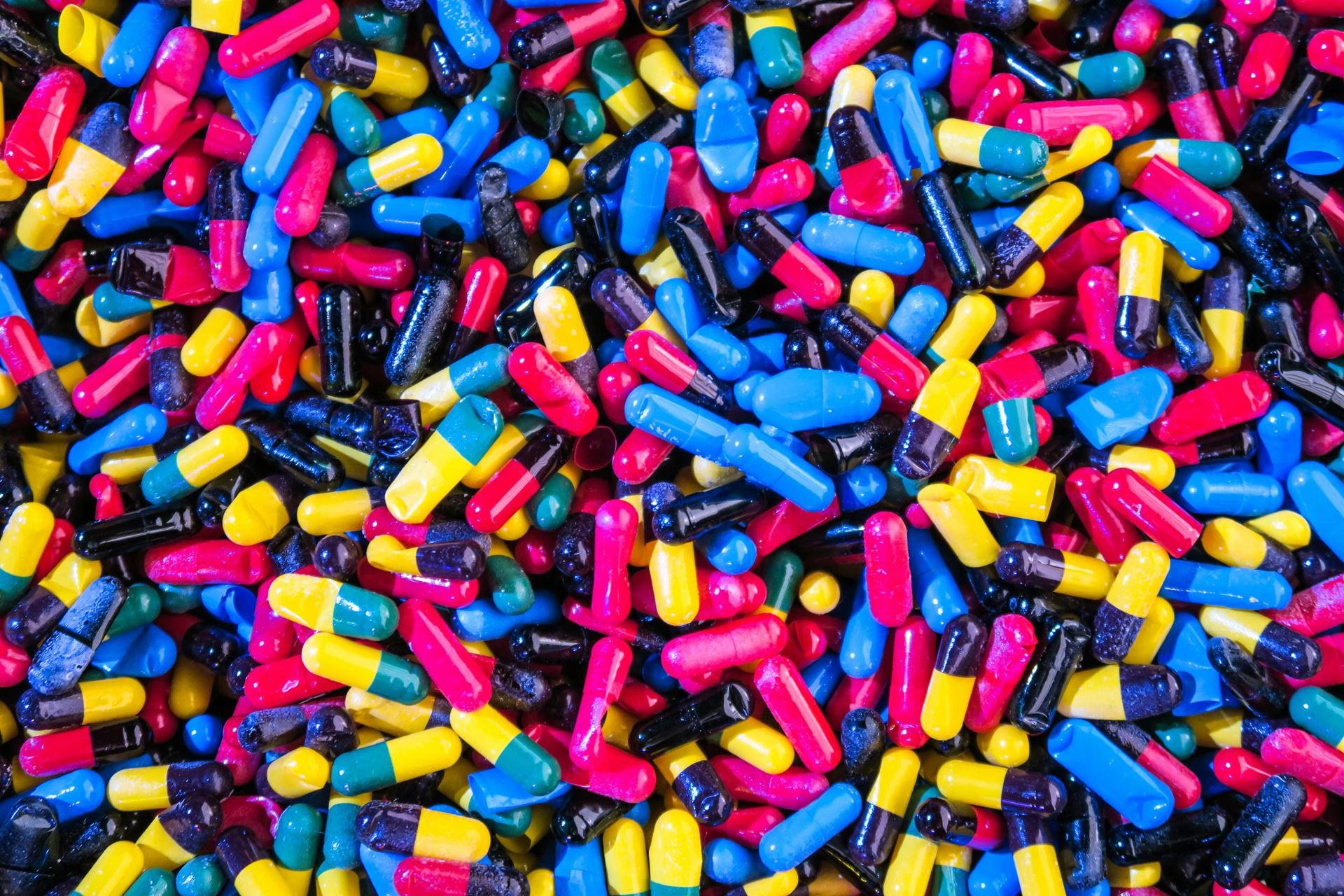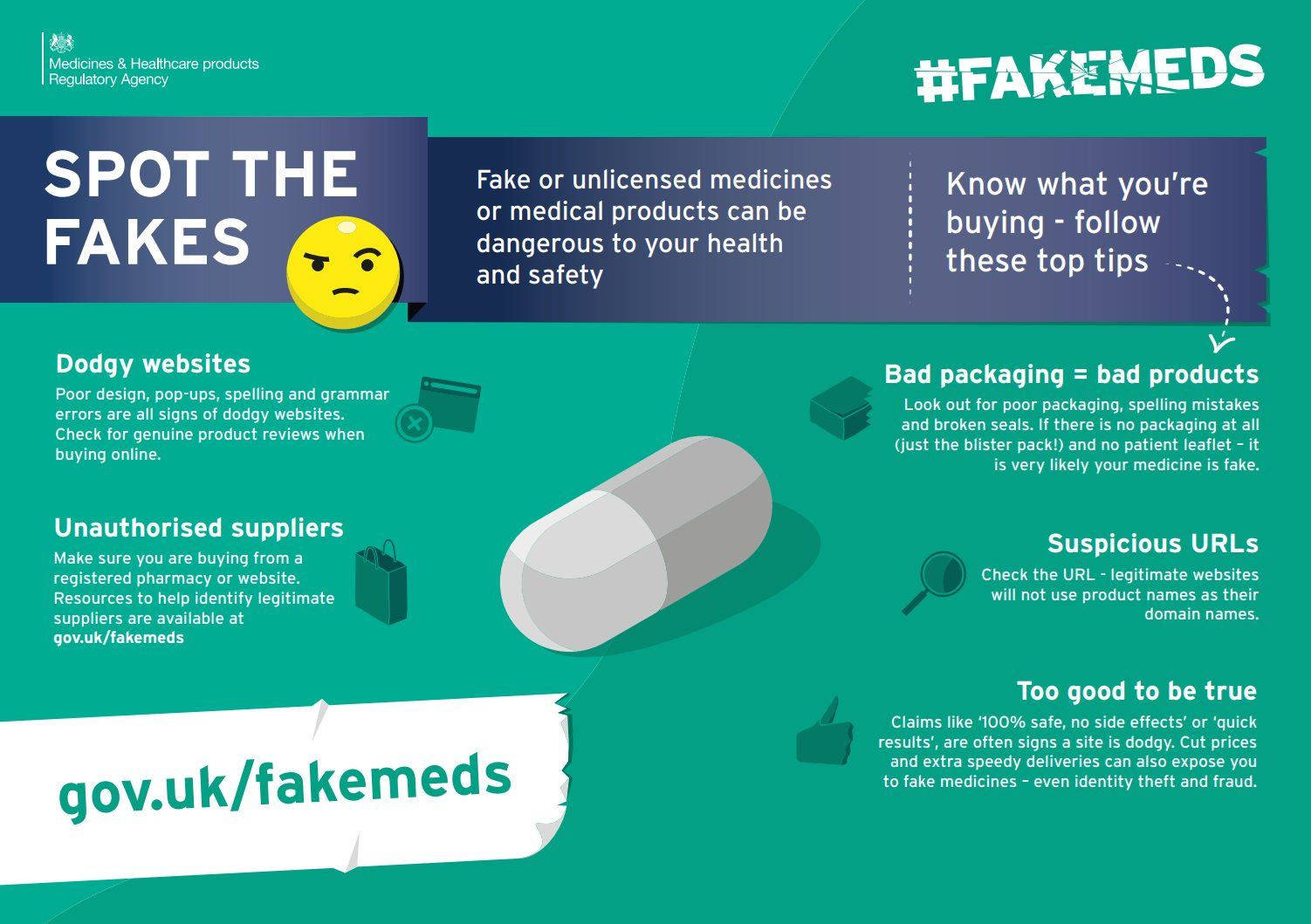Counterfeit Medicines

COUNTERFEIT MEDICINES #FAKEMEDS
Counterfeit medicines are fake medicines that are often produced in unsafe and unsanitary conditions. This means they are not inspected by regulatory authorities, making it impossible to know what ingredients the counterfeit medicines contain.
Counterfeits can be very dangerous and are a serious public health risk. The primary danger in taking a counterfeit medicine is that patients are putting something into their body that may not help their current condition and, more alarmingly, could result in harmful effects to their overall health.
Experts have identified harmful substances within counterfeit medicines such as boric acid, leaded highway paint, floor polish, brick dust and heavy metals.
Falsified medicines are fake medicines that pass themselves off as real, authorised medicines. The European Union (EU) has a strong legal framework for the licensing, manufacturing, and distribution of medicines, centred around the Directive on falsified medicines for human use, so that only licensed pharmacies and approved retailers are allowed to offer medicines for sale, including legitimate sale via the internet. The European Medicines Agency works closely with its partners on the implementation of these laws.
Obtaining medicines through unregulated and unregistered internet sites or via social media poses a potentially serious health risk, as these medicines are not made by trained scientists under the rigorous conditions required for patient safety.
Patients also increase their risk of being victims of credit card fraud or having their identities stolen.
Prescription medicines should only be used as prescribed by, and under the supervision of, a qualified healthcare professional. When purchasing medicines online, patients should be mindful to only choose a pharmacy or online retailer that is registered with the MHRA or Royal Pharmaceutical Society of Great Britain
All pharmacies operating in Great Britain must be registered with The General Pharmaceutical Council (GPhC), who also operate a voluntary internet pharmacy logo scheme. The logo helps consumers to identify legitimate online pharmacies so that you can be sure you are purchasing safe and genuine medicines online. The GPhC logo contains the pharmacy’s unique seven-digit registration number, and when clicked takes the user to the Royal Pharmaceutical Society of Great Britain (RPSGB) website to help verify the pharmacy.

Page created: 15 June 2023